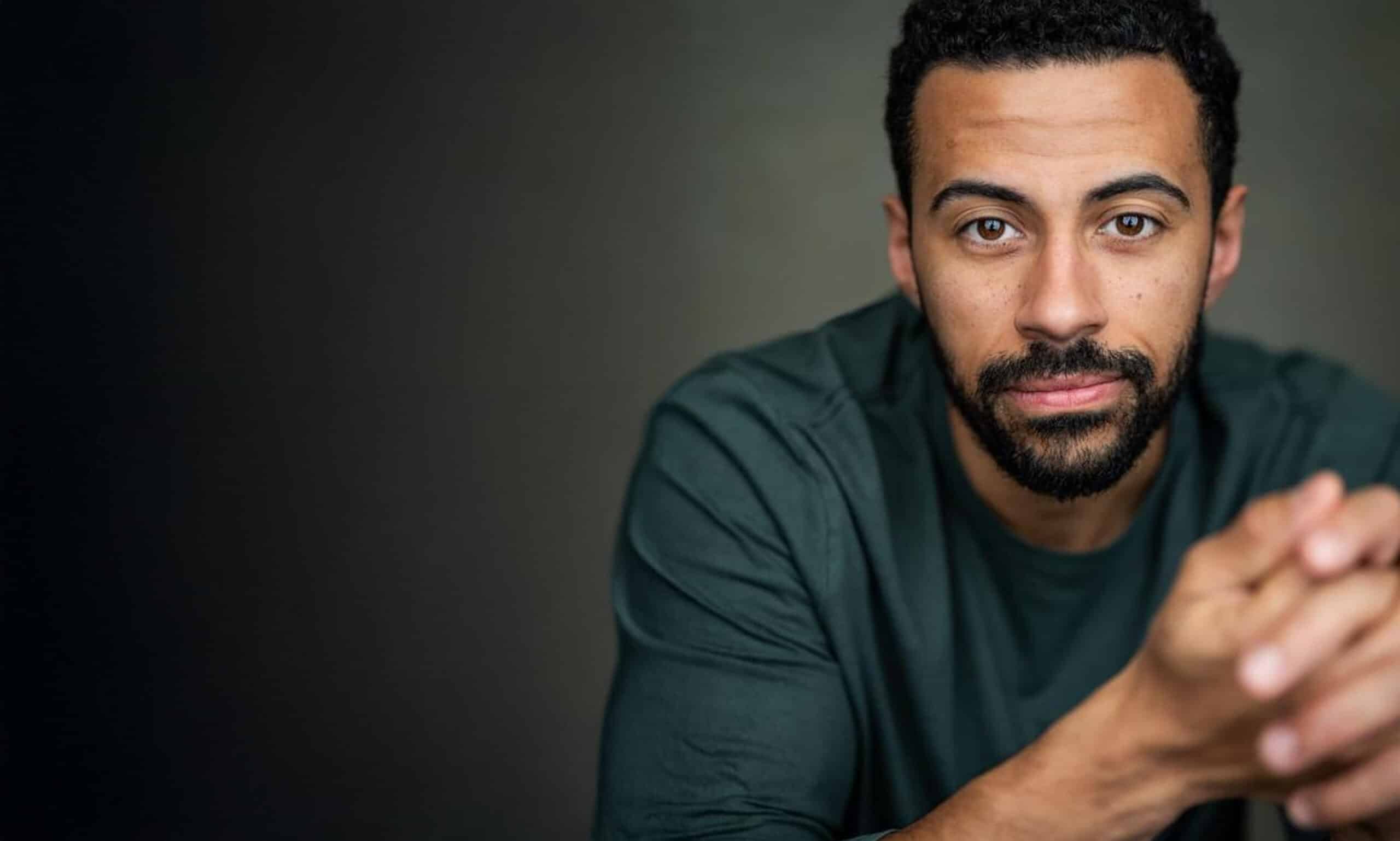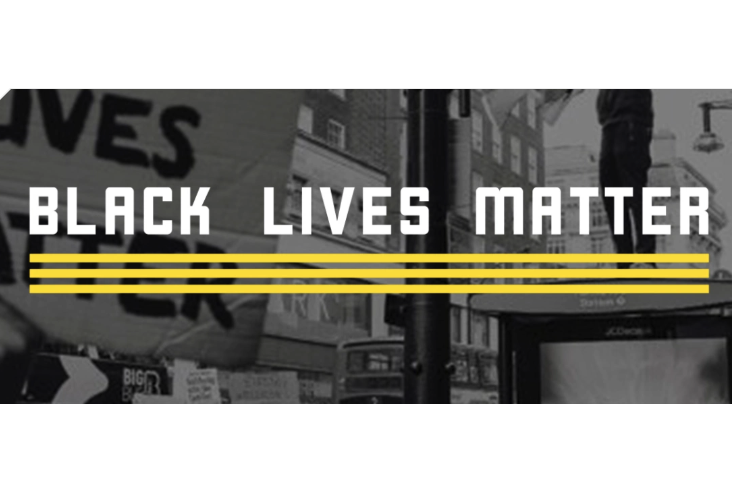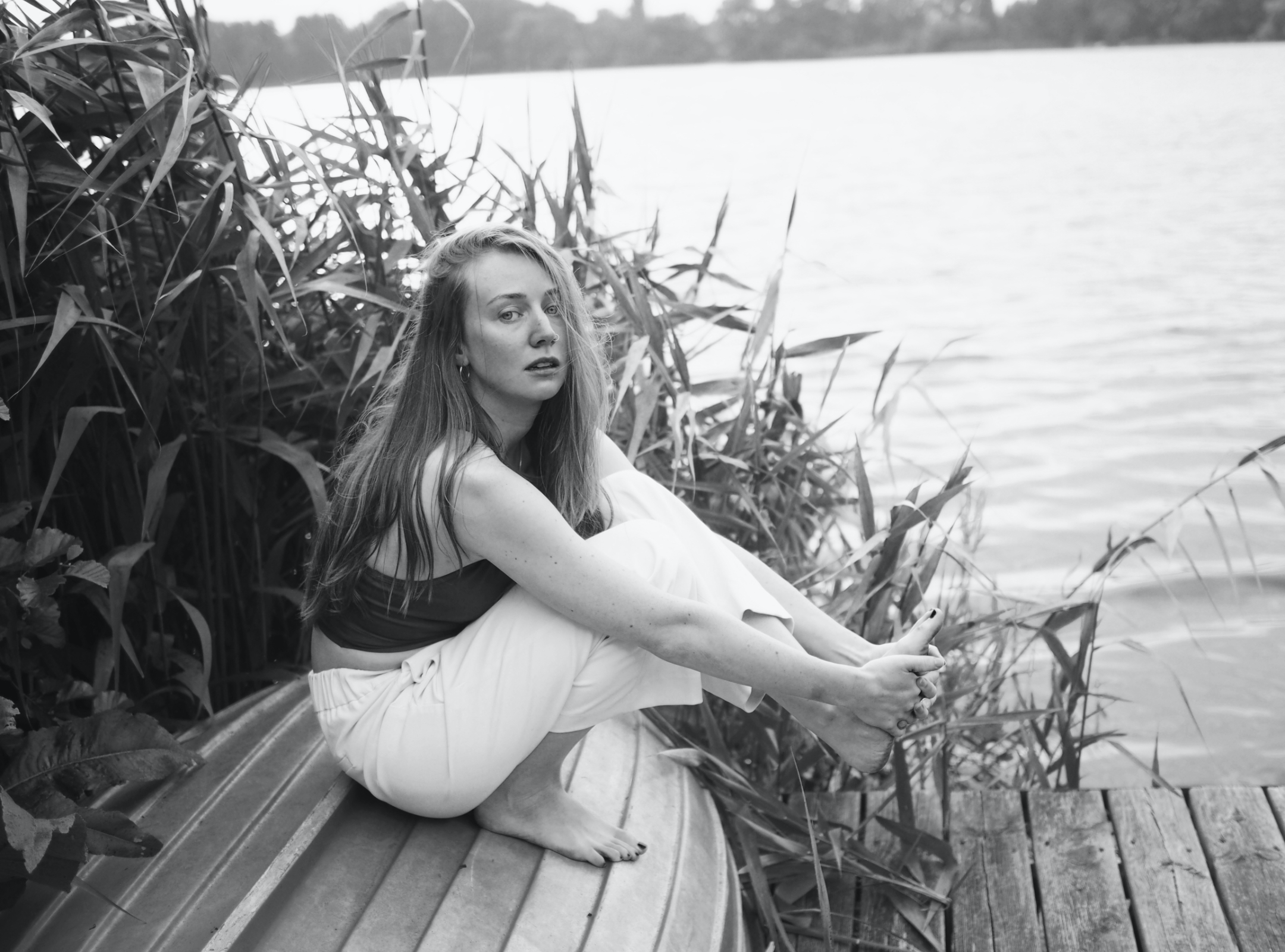Our amazing lecturers are all active in the creative industries, whether that be choreographing stage shows, producing a theatrical run, or lighting up the silver screen. We caught up with Manchester campus lecturer Dean Fagan to learn more about his background, his time on iconic show Coronation Street, and his advice for up-and-coming professionals.
What was your first professional role after training, and how did that lead you to television?
I got my first professional role while I was still training at the University of Salford. What was great about Salford is that they allowed their students to go out and do work, which I always found sensible. That’s what you’re going to drama school to train for – to get the work. For me, there’s no better way of learning than learning on the job.
I think my first job was a CBBC show – a comedy that taught kids about where things came from, inventions like the fork, the toilet, things like that. We went back in time to see when they were first invented, and I was the right-hand man to this guy called Ian Straddler. The show was called Eon Straddler Time Traveller. It’s very Doctor Who-ish, so that’s my claim to that!
It was quite a physical comedy show, very entry level – probably just above a student production in scale. Very minimal crew – you only had your camera guy, the director, and the person who would put up the lights. Never more than seven or eight people on set at a time.
My first proper professional drama job was with the BBC again – a show called Worried About the Boy, which was a biopic of Boy George and Culture Club. I played Mikey Craig, the bassist. That was much bigger in scale – you’re getting picked up by courier, the whole professional treatment. That was very eye-opening and my first real step up after Eon Straddler.
Did you always want to be an actor?
I went to college to study performing arts when I was 16, but before that I had no clue I wanted to get into this game at all. I was actually signing up to be a bricklayer! There was an open day at the college, and the person who was meant to be seeing me for the bricklaying course was on lunch. They said come back in an hour, so I went wandering around the college.
As I was walking down one of the corridors, I saw “performing arts” and thought, “I’ll give that a go.” I walked in, the teacher spotted me and asked if I wanted to join. I had my ID with me because I was meant to be signing up for bricklaying, so she scanned it and said, “Right, we’ll see you Monday.” That’s how I got into performing arts – quite serendipitous!
Once I got on stage after that crossroads moment, I was like, “Yeah, this is something else. I’m liking this, I’m liking the attention.”
Did you always know you wanted to be a screen actor, or were you open to theatre as well?
I didn’t realize I wanted to be a screen actor predominantly until Coronation Street, funnily enough. When you’re doing it day after day, it’s like riding a bike. At first it’s scary and you’re put off by all the mechanics and movements. But once you start getting used to that, it becomes more natural, and then you start to see the opportunities that screen acting can give you.
I believe screen acting has far more things to give than stage does. That may sound controversial, but there are so many intricate details you can give on screen compared to stage. It’s more real – you’re in a real environment, so you just have to play it as truthfully and as real as possible. You’re not playing to the back of the room; you’re playing to a lens.
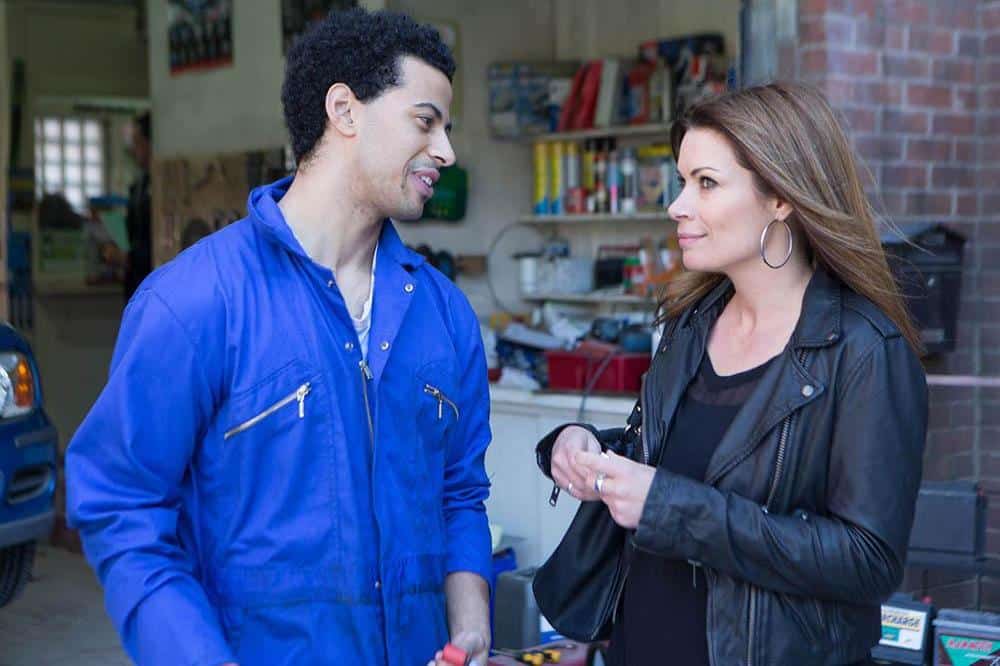
What are the misconceptions about being in a long-running show like Coronation Street?
There’s a common misconception that the quality dips because of the amount of content they’re putting out. When I was there, they were doing five episodes at a time, and people think, “With that amount of output, how can the quality stay the same?” You get that generic feeling towards soaps – “it’s only soap acting” and all that.
But I believe you truly learn your craft on soaps. It’s a microcosm of the industry as a whole – you can experience everything within one show. Because there are so many people who move through it – directors, producers, writers, actors, set people – it’s this machine where you slot yourself in and work with all these different cogs.
You work with so many different people that it trains you up very quickly. It’s a crash course in the industry itself, and also in screen acting. It’s not just about the technical aspects – it’s about relationships with people, how you communicate, how you get your ideas across about the character.
Do you get input into how your character evolves?
You do at the start, but it has to be constantly evolving because you don’t know when it’s going to end. You need foundations for sure, but there are things that happen to the character that you would never have foreseen, so you have to allow your character to adapt.
Sometimes it’s about how you play a scene – if you play it a certain way, a writer might look at that and think, “Oh, that’s interesting, I didn’t see that when I was writing it,” and they might write more towards what the actor was trying. But the majority of the time, it’s probably about 80% they dictate the character out and 20% your interpretation of their script.
Does being on a long-running show prevent you from taking other opportunities?
When I was in the show, we weren’t allowed to do anything else because of conflict of interest. Your face is the brand, your face is your character, so they don’t want to see their product being utilized by a rival company. You could do podcasts, presenting shows, game shows, but you couldn’t do other acting work.
I think it’s changing now – they’re opening up more to allowing their actors to do other things. But when I was there, you couldn’t do anything else, which I found was a shame.
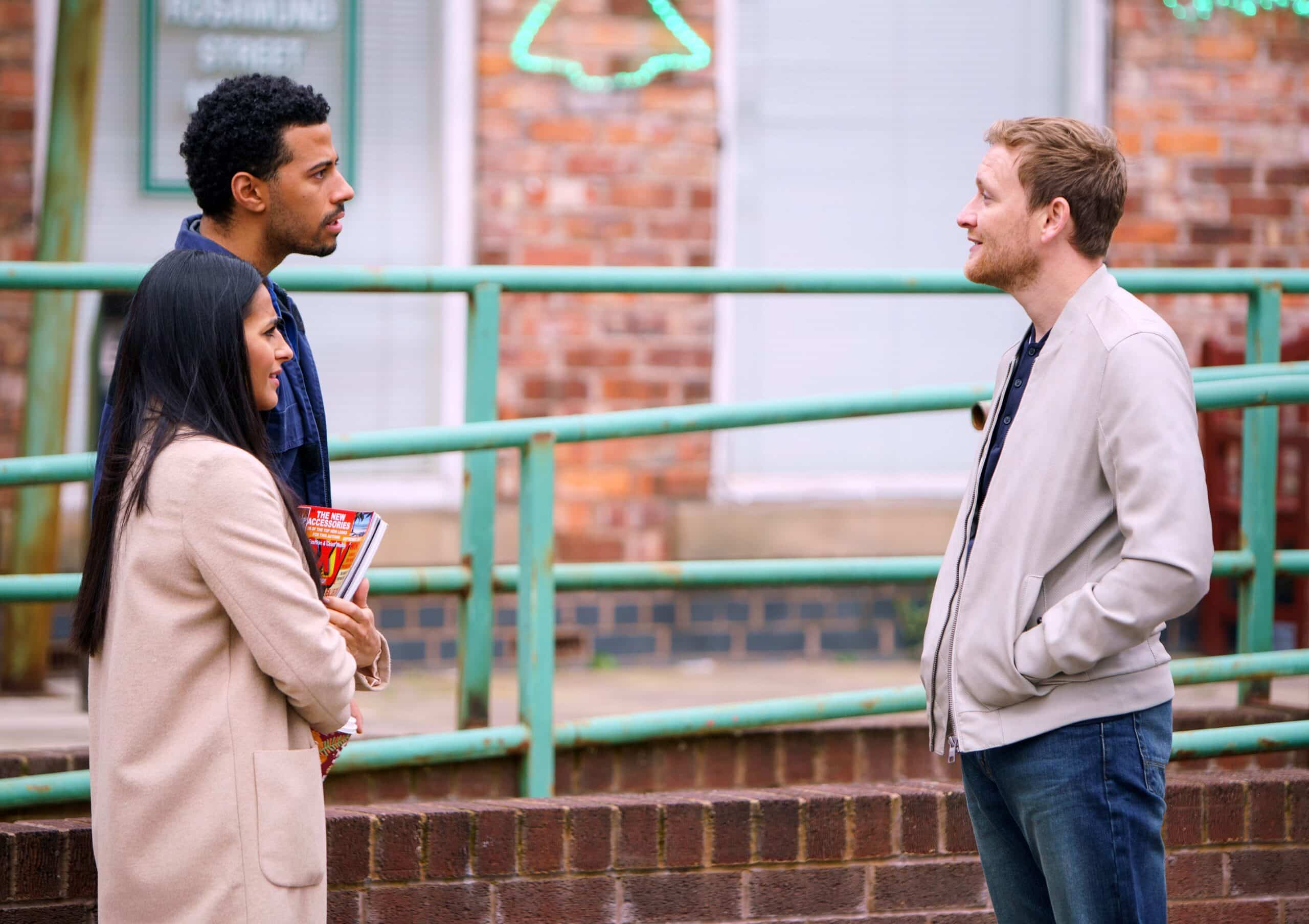
What skills does an actor need to be successful other than the acting?
Dean: Social media and self-promotion, which naturally occurs in newer generations. When I was coming through, social media wasn’t really prominent. You are the product now, so utilize social media, tell everybody what you’re doing.
But I think the main skill is eagerness to learn and not being too proud. I know when somebody’s not confident – when you give them a note and they go “Oh yeah, yeah, I know that” but do they really? It’s a flag to me that they’ve closed off completely because they don’t want to be hurt or have their world destroyed. They’re protecting their ego.
Just be willing to make mistakes, be willing to learn. Be open to the fear and accept it. You’re in a position where the unknown is vast, and you’ve just got to wade through it. Just be open and willing to learn.
What advice would you give to someone who specifically wants to get into soaps?
Don’t do anything you don’t want to do. You do have a say in your career. Just enjoy it and learn. It’s a learning ground – it’s such a shame when soaps get shut down because it’s not just a learning ground for actors, it’s for filmmakers too. Everyone can come through and say, “I’ve done this, it was shown on TV, I can put that on my credits.”
To get in, I had an agent – that’s how I got into it. This is why Performers College holds the agent showcases in the third year. The agent finds you the jobs or opens doors to opportunities. If you haven’t got an agent, keep your eyes open for open casting calls.
But finding an agent is like a catch-22. For me, it was part luck, part hard work, and part timing. I was doing a Theatre in Education piece at Salford Uni, and the director was with my first agent. He said he thought there’d be a need for actors like me and offered to set up an interview.
The common denominator is: be active. Be doing stuff where people can see you. If you’re doing theatre shows or showcases, invite agents down and say, “Here I am, I want you to see me”.
What else are you currently working on?
I’m currently filming in the south of France on a Channel 5 drama with Joanna Scanlan and Rupert Graves. The perks of the job – you see the perks! I’m also looking forwards to teaching on the MA Performing Arts course at Performers College Manchester.
I run a production company in Northeast Wales with Ian Puleston-Davies, who I was in Coronation Street with, and Ruby Snape, who has vast experience – she’s worked with the likes of Kenneth Branagh. We’re one of the only, if not the only, narrative-based production companies in Northeast Wales, so we’re tapping into an untapped resource there.
We’re getting a slate together and hope to get a production off the ground by the end of this year or early next year. It’s another avenue for me – I’ve always been in front of the camera, but now I’m going behind it, and I love it.
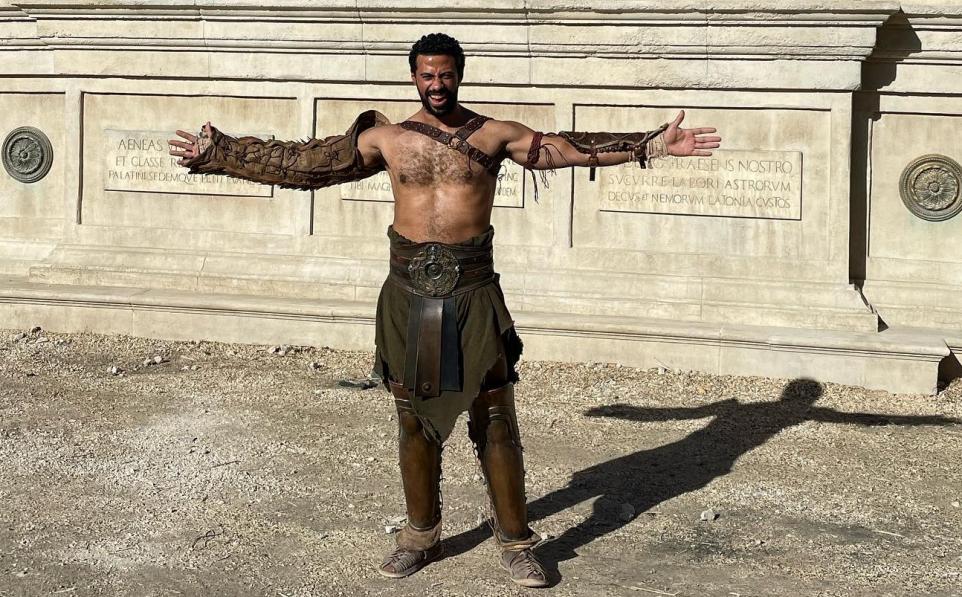
Finally: What was working on Gladiator 2 like?
Amazing! Working with Ridley Scott – what can I say? They built the Colosseum for real in the middle of Malta, built the Roman promenade. It was such a blessing and an honour to be there working with some of the best on such a huge production.
He’s 86 and still doing it, and he’s the only one who can build what they built on Gladiator 2 – for real, very little green screen. It’ll go down as one of my favourite moments in life, just being part of it.
To discover more about Performers College, including auditions and how to apply, contact us at [email protected] or you can Apply Now, or book an Open Day on our Events page.
